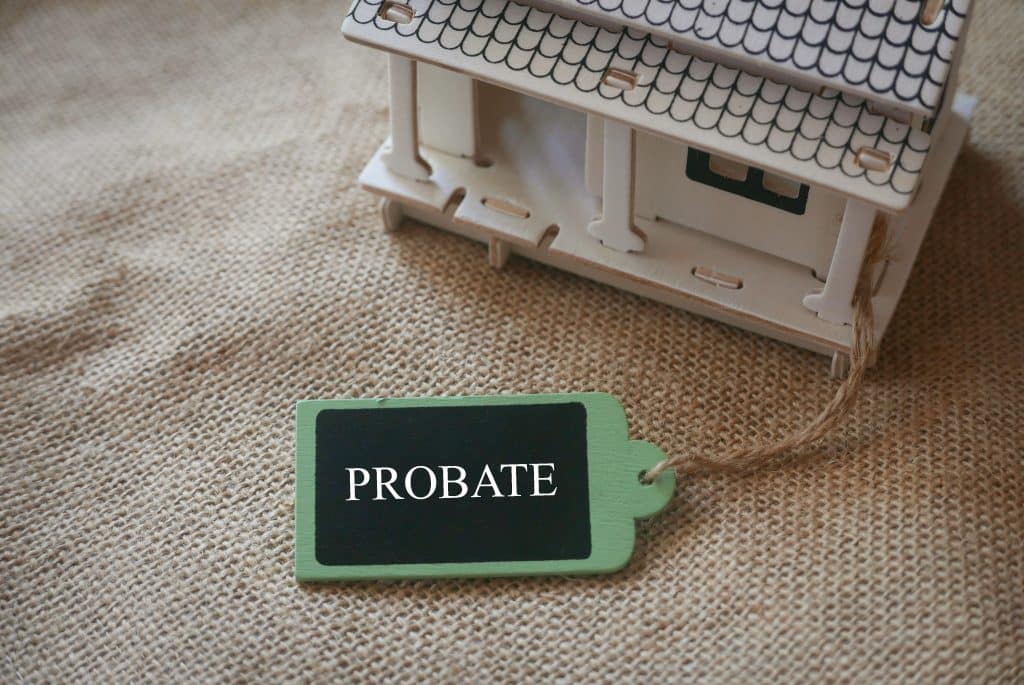Probate is the legal term applied to the range of legal and financial processes that need to be undertaken when someone has died. It encompasses the actions that should be taken when it comes to dealing with the money, possessions and property of the deceased and fully executing the contents of the will. Probate also includes proving that any will is valid and confirming who has the authority to administer the deceased’s estate.
Before the executor who is named in the will or the next of kin can begin to administer the estate, they may be required to apply for a grant of probate.
The laws around probate are often misunderstood with a range of myths existing about when it is and isn’t required. What exactly is a grant of probate, and who needs it?
What is a grant of probate and why is it required?
A grant of probate refers to the legal document that’s often required for an executor to begin administering the deceased’s estate. This allows access to bank accounts, for the sale of assets and to settle any outstanding bills and debts after someone has died.
If the deceased didn’t leave a valid will then the document required is called a grant of letters of administration. It fulfils a similar function as a grant of probate, giving legal authority to a named person in order to administer the estate of the deceased person.
The need for probate isn’t dependent on the financial situation of the person who died and the value of their assets. Where a will exists this will set out how the assets should be distributed. Where there isn’t a will, then the law determines who will receive everything.
The time it can take to get a grant of probate or letters of administration will vary according to the circumstances of the individual case. Where there are no complications, inheritance tax isn’t payable, the forms are filled in properly and the estate is relatively straightforward, then it may only take between three to five weeks. In complicated cases, it can take considerably longer. For that reason, it’s important to ascertain whether or not a grant of probate will be required as quickly as possible.
Do I need probate?
In England and Wales, probate will usually be required when the deceased person owned property or significant assets in their sole name. If you approach a bank or other financial institution in order to access these assets, then a grant of probate or grant of letters of administration will be needed.
If you have been named as the executor in the will of a deceased person or if you’re the next of kin of someone who died without a will, then you’re likely to need probate if the deceased had assets of over £10,000. This will be needed to access accounts and handle their assets.
To find out if you require probate you will need to work out the value of any assets that the deceased has left. If the deceased had very little or nothing saved and didn’t own property, then a grant of probate will not be required.
Secondly, establish whether or not assets were jointly owned. In most cases, this will be obvious. The deceased’s partner may still be alive and living in the property they shared with the deceased. In some cases, however, it’s possible that couples have separated but retained joint ownership of some assets, or assets were held in partnership with someone else.
If assets are joined owned, all that’s required for those assets to transfer to sole ownership of the surviving partner is the death certificate.
When is probate needed?
Probate is required for around 50% of UK deaths whether or not there is a will. It’s used to access bank accounts, other investments and deal with any property that the deceased held. Different institutions have different thresholds for when the grant of probate is required, but if the deceased held property in their sole name, then the grant of probate will always be required.
If a property is to be inherited by someone but there is still an outstanding mortgage secured on it, the mortgage company will usually require the mortgage to be paid immediately. Alternatively, they may request that the person who inherits the property takes over the mortgage. In both cases, a grant of probate will be required.
If the property was owned as tenants in common, or if there are other solely owned assets within the estate, then you may still need to secure probate for the property. Examples of other solely owned assets within the estate might include bank accounts, pensions, life insurance policies and shares.
When is probate not needed?
Probate will not usually be required if the estate is worth less than £10,000. Most banks and building societies will usually release funds under £10,000 without seeing a grant of probate. In some cases, this threshold is set at £5,000.
Probate may also not be needed if most of the assets are jointly owned. The reason for this is that joint mortgages and savings accounts will automatically pass to the surviving owner.
If the estate is made up of just cash (such as banknotes and coins) as well as personal possessions such as cars, furniture and jewellery, or if the estate is insolvent, then you will not need a grant of probate. In most cases, this will mean that there is not enough money in the estate to pay off any outstanding debts, expenses and taxes.
Our experienced wills and probate team are always happy to provide advice and guidance about the probate process. Call 01244 893133 or email info@fjsolicitors.co.uk to book a free consultation.






